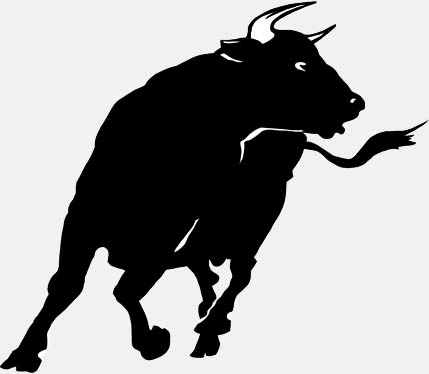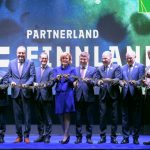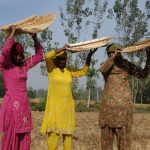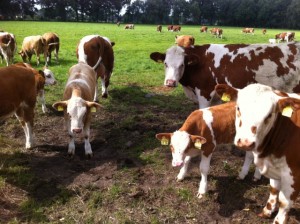 Who indiscriminately eats meat, does not buy cheap – he pays three times: first, as a consumer when purchasing, then as a taxpayer subsidies for agriculture and thirdly for the enormous losses in nature at the factory farming.
Who indiscriminately eats meat, does not buy cheap – he pays three times: first, as a consumer when purchasing, then as a taxpayer subsidies for agriculture and thirdly for the enormous losses in nature at the factory farming.
60 billion farm animals live, suffer and die at present only for the purpose, of being around 7.2 billion people ( world population 2014) eaten. In the context of intensive livestock production the relationship between humans and animals gets lost more and more. In many cases, it’s all about profit. The dignity of animals and the respect for them often remains on track and leads to unnecessary suffering and painful animal transports, while everyone can do something about it and everyone is required to do so, if he wants to preserve the future worth living; see climate catastrophe …
Most cows see today no more pasture. Unfortunately , they are only in the stable and the pigs too. It is not appropriate to the species. It is sad …
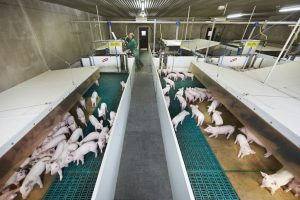 … and sometimes without words:
… and sometimes without words:
This photo is one of the series “Pigs” of the ‘club food industry and the German Farmers’ Association for the Photokina 2014 in Cologne. It is the consumers ‘ aesthetic ‘ demonstrate how it’s going in the pig stables. Pigs are clever, curious animals who need alternation …
Scientists already build the burger in the Petri dish . Unfortunately, the ‘artificial ‘ muscle pile currently costs a fortune of about € 250,000 (see under ‘Alternatives’ Peter Burger ) …
At the moment you can alternatively only forego meat, or you buy your meat from organic, sustainable farming farm shops, organic supermarkets with meat assortment, eco – markets and organic butchers. Scale agriculture and establishments heed this idea very intense, need support. They produce less because the animals are not crammed into narrow gates. The production is expensive and revenue is low, but the quality is much better. The German Nutrition Society recommends for health reasons 300 to 600 grams of meat per week – less than half the average amount consumed today. A healthy and balanced diet, in which is frequently resorted to vegetables and grain products instead of meat, can make an important contribution to the protection of rain forests and other biodiversity-rich natural areas. Unfortunately, so far only a tiny proportion of the meat in Germany is produced according to organic criteria: 5 % of the herd, 1% of the pigs and 3% of broilers. (Source WWF) It is in our hands, in the hands of the consumer to change that. Small, deliberate changes in diet help already: Multiple week do without meat and the remaining days for better eating meat, the preparation pollute the environment as little as possible. Such as Meat, prepared according to the criteria of the EU Bio-Labels, the organic farming associations, as well as so-called ” free-range meat “, derived from animals that were year-round in the meadow. The best criterion is always one’s own eye!
 Who indiscriminately eats meat, does not buy cheap – he pays three times: first, as a consumer when purchasing, then as a taxpayer subsidies for agriculture and thirdly for the enormous losses in nature at the factory farming.
Who indiscriminately eats meat, does not buy cheap – he pays three times: first, as a consumer when purchasing, then as a taxpayer subsidies for agriculture and thirdly for the enormous losses in nature at the factory farming. … and sometimes without words:
… and sometimes without words:





